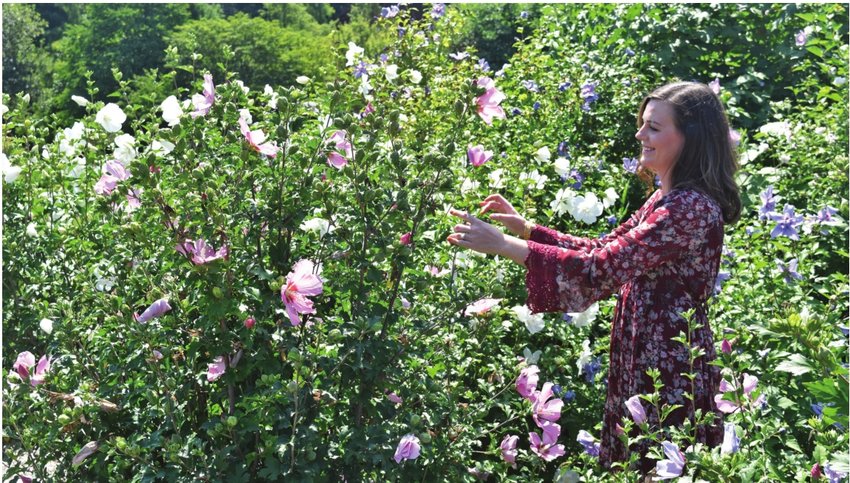
Dropping their brooms and straightening their noses, 21st century witches are nothing like the spooky, but imaginary, poisoners of yesteryear. Instead of trudging into the woods at midnight for secret rituals, millennial witches flock to social media to network and practice their religion.
“Look at me,” said Morgan, leader of the Okemos Witches Meetup social media group that sports 12 members. “I don’t have a giant nose with a giant wart, I don’t live in a cave; I’m just a normal person. I have a dog, a family, a cat, and I like long walks on the beach.”
Morgan said she was drawn to witchcraft at an early age.
“It was something I was fascinated by as a child in elementary school,” said Morgan. “I had a group of four girls in school — we would all play witches together and look things up online when we could.”
Practicing witchcraft, Morgan said she faces the threat of discrimination and abandonment from her traditionally Christian family. “I grew up in a Christian house, and it wasn’t an acceptable thing I could explore,” said Morgan.
She still hasn’t come out to them. “This is definitely being a little bit vulnerable,” said Morgan.
“During my teenage years, I was very open about not being Christian. That was a huge point of contention with all of my family,” said Morgan. “I was forced to go to church. I told my family I’m not a Christian, and they told me it was their responsibility as my parents to force me to go and save my soul.”
Morgan said she waited until she could leave and took her chances. “I had to go to church until I was 18. It was something I looked forward to, to the day,” said Morgan. “I moved out on my 18th birthday.”
The conversation hasn’t started up since. “I haven’t talked about it, because if I truly feel if I were to express myself or my interests, it would be too overwhelming for them. I don’t want to ostracize myself from them.”
The sense of collective societal disapproval is palpable as well, said Morgan.
“You feel ashamed, because it is looked down upon by a lot of major religions. It is very specifically looking at witchcraft as bad — you will be condemned and you will be punished.”
Starting a Meetup group was a way to network with others in the community safely, said Morgan. “I want to get to know other people in the community, so we can grow to have more in person interaction,” said Morgan. “That’s what our meetups have been about: sharing books, sharing experiences and what we practice.”
Evxen in online networking, the threat of persecution is real, said Morgan.
“Creating a Facebook page, you are really going to open yourself up to potential danger, because there’s a lot of fear surrounding this type of thing in general,” said Morgan.
“I was on Facebook, but then deleted my profile permanently because I was targeted. I was tired of not being able to be who I am — to show pictures of who I am and what I like; what I’m interested in.”
A lot of discrimination comes from misconceptions, said Morgan. “People think it is satanic, but it isn’t.”
“Witchcraft is a broad term, while Wicca is an established religion. The people on my Meetup group are more ambiguous,” said Morgan. “You can still have witchy aspects of your life and practice a form of witchcraft, while not ascribing to the Wiccan religion or Druidism.”
Inclusivity and accessibility are paramount to her goals as administrator, said Morgan.
“This group is for anybody who wants to practice something that deals with the occult or mysticism.”
Morgan said she practices personally with a focus on nature and tarot. “I really like this new book called ‘The Green Witch.’ It’s about herbs and gardening and that’s something I’m very much into and spend a lot of time doing. It’s a mindful practice that I can do all summer.”
In terms of her religion’s physical rituals, Morgan said she likes to use items out of her garden.
“I take herbs and scents and sew them into a small sachet. You can keep it below your pillow at night to invoke different kinds of dreams depending on what you’re looking for.”
Lansing is no stranger to pagans and witches. There is an active pagan food bank in Lansing, and Michigan has a scholarship committee that awards $500 scholarships to high school seniors practicing paganism or witchcraft.
Morgan said that people curious about practicing witchcraft should know that there is a supportive subset of the community in Lansing. “There are two stores I know of in Lansing, and they seem to be thriving. Clearly there is a community here keeping them in business.”
Despite a family and society in contention with her practice, Morgan remains optimistic that the way people view witches can change.
“I don’t think it is something that people will always hate,” said Morgan. “Things are shifting where people are steering away from religion in general. People who go away from religion don’t mind what I’m doing, because I’m not out there knocking on doors and trying to push it onto the mainstream.”
Support City Pulse - Donate Today!
Comments
No comments on this item Please log in to comment by clicking here